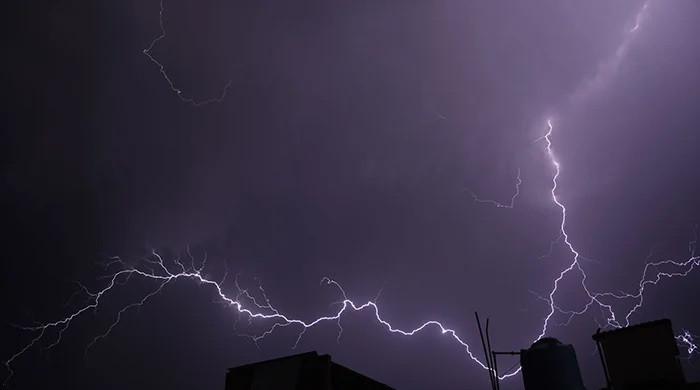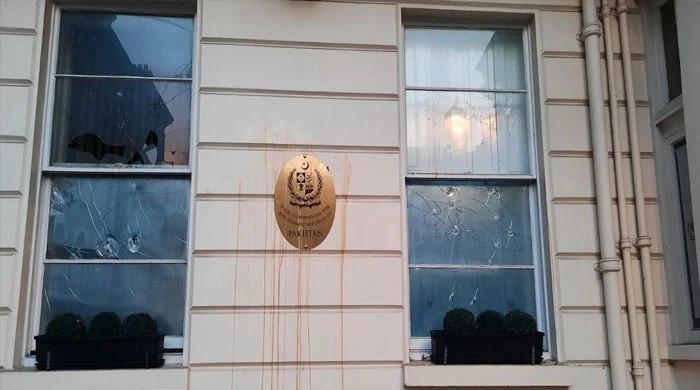Getting a coronavirus vaccine in Pakistan: What you should know
Pakistan to use Sinopharm, CanSino, Sputnik V and AstraZeneca vaccines to inoculate its population
April 07, 2021
In late 2020, a year after the coronavirus pandemic was first reported, vaccination programmes around the world began kicking off.
The three vaccines that were seen leading the efforts in most countries were Pfizer, Moderna and AstraZeneca.
However, since the Pfizer and Moderna vaccines require ultra-cold temperatures for their storage and transportation, they will likely not be coming to Pakistan anytime soon.
So which vaccines are available to the country's population of over 200 million?
Currently, the following four vaccines have been made available or will soon be available to Pakistanis:
- The China-made Sinopharm and CanSino vaccines,
- The Russia-made Sputnik V,
- And the UK-made AstraZeneca vaccine.
An question often put to health experts and searched on the internet is which one of the above is "the best". Before we come to that, let's have a look at each of the vaccines:
Sinopharm
The Sinopharm vaccine is the one currently being given to healthcare workers and the elderly in Pakistan.
It is said to be 79% effective in preventing COVID-19 infections.
The vaccine requires 2 doses to work. This means each person must get two jabs after a gap of 21 or 28 days.
The vaccine only starts working after the second shot.
The medical journal The Lancet describes the Sinopharm vaccine as “safe and well tolerated at all tested doses in two age groups.”
So far, 27 countries have approved the vaccine, including Pakistan, Bahrain, the UAE and Egypt.
CanSino
The CanSino vaccine was the first vaccine in the world to start human trials back in March 2020.
Globally, it has an efficacy rate of 65.7%. But in Pakistan, it has proved 74.8% effective in preventing symptomatic cases and shown 100% success rate in stopping severe cases of the coronavirus disease.
The vaccine is one of the very few to require only 1 shot to work.
CanSino, to date, has been approved in 4 countries: China, Hungary, Mexico and Pakistan.
Pakistan has placed an order of three million CanSino doses which are expected to arrive in April.
Sputnik V
Russia's Sputnik V coronavirus vaccine gives around 92% protection against COVID-19.
It is a 2 dose vaccine. The second dose is given 21 days after the first dose.
The Russian vaccine has so far been approved for emergency use in 55 countries.
Pakistan received its first shipment of Sputnik V in March, and it has been made available for sale through private sellers.
AstraZeneca
The AstraZeneca vaccine also known as the Oxford vaccine, has an efficacy of 63% against coronavirus infections.
The AstraZeneca vaccine is a 2 dose vaccine.
According to the World Health Organisation, recommended dosage is two doses with an interval of 8 to 12 weeks.
It has been approved by the World Health Organisation and further granted emergency approval in 81 countries to date.
Pakistan is expected to get the Oxford vaccine though the global Covax Program in the coming weeks.
So which of these vaccines is the best?
With so much information and so many numbers floating out there, choosing a vaccine can become a very difficult task.
It is understandable that you would want to choose the "best" vaccine for yourself and your family, but it is also important to keep these important things in mind:
1. Regardless of the ‘efficacy’ of a vaccine in preventing coronavirus, ALL vaccines that are currently available prevent serious symptoms from developing and eliminate the risk of hospitalisation.
This means that even if you do get coronavirus after getting a vaccine, you will not face severe side effects and will not need to be hospitalised.
2. Regardless of which vaccine you choose, it is important to remember that you are fully vaccinated only after you receive all the required doses of the vaccine.
If you are getting vaccinated with a vaccine that requires two doses, you will be safe some time AFTER you receive your second dose.
Remember, even after you are fully vaccinated, you should continue taking precautions. Avoid large gatherings and poorly ventilated spaces, wear a mask, and stay six feet away from others.
So go ahead! Get yourself vaccinated. It is the only way to return to some semblance of normalcy.











